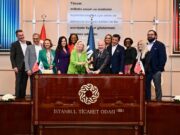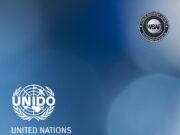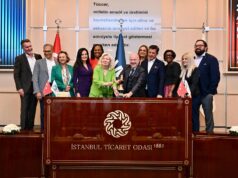As the world grapples with COVID-19, we can all agree that investing in outbreak preparedness should be a no-brainer in the future. Angel Investor Review sat with Mario Ottiglio, Managing Director of High Lantern Group, and Faculty Member of the WBAF Business School for a chat on what are the emerging themes coming out of the COVID-19 pandemic.
AIR: Let us start with a direct question – were we prepared for this?
Mario Ottiglio: While absolute certainty is an impossibility in pandemic/epidemic preparedness, we cannot say we were not warned. If we look at the first two decades of this very century, a number of epidemics and pandemics – SARS Coronavirus, the Swine and Avian Flus, MERS Coronavirus, Zika, and Ebola – have inflicted damage on people, communities and economies around the world. Following each of these epidemics, we saw a short-term term uptick in discussions and conversations around long-term preparedness. Yet, despite the incredible progress in pandemic preparedness made over time, we still really don’t understand if we are capable as a global community to respond to emerging global health crises. In the last two months, as information about Covid-19 spread across the globe at unprecedented speed, we have with our own eyes the emptying of public gathering places, a weakening of economic activity in places like malls, shops and retail stores, a massive decline in mobility – personal and commercial, debilitating supply chain shortages, and some irresponsible behaviors like hoarding and price gouging. In essence, a general unraveling of the social and commercial connections essential to modern life.
To increase preparedness, in addition to governments – who must now do whatever it takes to keep us healthy – there is a huge need for other types of actors to better understand the social, political, and economic impacts of epidemics and to more fully engage in disease preparedness at all levels.
 AIR: Some key themes are already emerging that will likely influence future engagement around health preparedness by non-governmental actors. It’s really early now, and we have to focus on addressing the immediate, but what’s the main lesson for you we will need to take into account in the future?
AIR: Some key themes are already emerging that will likely influence future engagement around health preparedness by non-governmental actors. It’s really early now, and we have to focus on addressing the immediate, but what’s the main lesson for you we will need to take into account in the future?
Mario Ottiglio: The greatest lesson impacting all of us is probably this: improving health literacy is essential to healthy populations. While many would view health literacy as a simple and obvious building block to improving global health, the Covid-19 epidemic has exposed glaring gaps: many people do not know and do not and cannot understand. Efforts to address what many have defined as silent epidemic – the sharp decrease in health literacy – should be multi-sectoral and should include national, regional and local governments, healthcare institutions, NGOs and nonprofit organizations, companies small and large, medical professionals, and media outlets.
In particular, media organizations shoulder a significant responsibility in shaping opinions around global health issues; careless reporting and poor information management can ignite dangerous and counterproductive public reactions. Since the beginning of the outbreak in Wuhan, the general public have suffered from a vacuum of scientific evidence and information on the disease—in the absence of sound scientific data, opportunities for the rampant spread of misinformation, fear, and anxiety are manifold.
Complicating matters, compulsive reporting has placed Covid-19 at the front of news cycles for the last months: in media mainstream, you can only read about the virus, with news which in other times would hit the headlines such as Brexit, the dramatic situation in Syria, the sharp drop of oil’s prices, or the tragic reports about migrants escaping from war and pressing on the Bulgarian and Greek borders, relegated to “other news”. Even the US elections seem to be a side-topic these days. Whereas Covid-19’s omnipresence in mainstream media has on the one hand helped some to better understand the situation, on the other hand it has also laid the foundation for irresponsible behaviors. We have seen a spike in incidents of physical and verbal abuse against Asians and Italians, a dangerous mushrooming of misinformation and a proliferation of online scams, including sales of compromised or ineffective masks, hand sanitizers and safety toolkits. These reactions remind us that we need to invest resources in educating populations about public health. We know that education is one of the most important social determinants of health. Many studies have shown strong links between low literacy skills and poor health outcomes, including mortality. Adequate literacy would (and will – because it’s not over) help people understand why quarantines are needed, why football matches and other public gatherings cannot take place, why it’s better not to purchase face masks, and why one shouldn’t rush to the hospitals at the first suspected symptoms.
AIR: And what about businesses? We are seeing an unprecedented response from businesses in every part of the world as your organization as well has been tracking. Is there any top consideration for CEOs to take into account for the future?
Mario Ottiglio: I – and smarter people than me – have been saying this for year: businesses must prioritize global health, including epidemic preparedness. Improving health literacy should be an important priority for businesses too as they sit in the privileged position of being able to influence a high percentage of consumers through their brands and foster literacy and ultimately responsibility. Looking at the business side, as the global economy continues to take a hit (the S&P 500 decline triggering an unprecedented trading stoppage last month for instance) it is crystal clear that private sector organizations have done little to prioritize epidemic preparedness, driven at least partially by a lack of leadership. A 2015 WEF report examining executives understanding of the need to prepare for epidemics outlooks, for example, found that only 37% of executives surveyed by the United Nations Conference on Trade and Development identified infectious disease outbreaks as a factor likely to reduce global investment activity.
The current Covid-19 outbreak demonstrates once again the different dimensions of organizational preparedness needed to manage a disease outbreak, including medical and non-medical emergency response, business continuity, crisis management, and crisis communications. And this applies irrespectively to big and small enterprises. Covid-19 is increasing driving focus around employee welfare policies (safety, leave, and employee healthcare).
A quick media scan shows that management conversations around preparedness are now focusing on workplace wellness issues like safety, remote work, smart working, etc. Though improving the working environment remains an essential aspect of any disease response, a more comprehensive preparedness framework must encompass all aspects of operational preparedness – from managing investors to monitoring supply chains to implementing appropriate internal and external communications strategies. Any CEO should be able to know already how and what to say to employees, partners, consumers and other stakeholders. The sensation at the moment is that businesses’ ties to the covid-19 is largely reactive.
Beyond preparedness, it is time for businesses to put health at the front and center of their operations and sustainability planning. As a recent report from Harvard noted, only 4% of Fortune 500 businesses specified any kind of health-related objectives, compared to 55% who had committed to an emissions reduction goal. What was more striking is that beyond the usual suspects (pharma and healthcare companies), hardly any other organizations felt compelled to craft a health strategy (6%) or a health impact report (1%). Health is inexorably linked to wealth and development, which are two enablers for businesses to thrive. It’s time for the global business community to embed healthcare goals in their strategic thinking and into their operational, reputational and commercial planning.
AIR: Adequate preparedness should be somehow supported by governments too. Another obvious emerging theme may be the reignited debate around healthcare system capacity to deal with acute crises. Would you agree?
Mario Ottiglio: Absolutely. Health systems must be structurally reformed to deal with global health crises. What you said is especially relevant in countries where systems have been set to deal with more chronic conditions. I can see what it is happening in Italy for instance, where a generally well-regarded infrastructure became quickly overburdened – and was at risk of collapse should the epidemic get out of control. Many observers are also concerned about the ability for the U.S. health system to handle the influx of Covid-19 cases in the mid-term. A recent piece in Time magazine reported that “people must actually choose to get tested—a potentially expensive prospect for millions of Americans.” Beyond the assistance given to those eligible for Medicaid and Medicare patients, it remains unclear exactly how much patients will be charged for testing. More than 27 million Americans currently do not have health insurance of any kind, and even more are underinsured. But – as the piece highlights – for those who do have adequate health insurance, the average deductible for a single person with employer insurance has increased 162% in the last ten years. It’s thus easy to foresee how covid-19 will impact the healthcare debate during the 2020 U. S. presidential race. Similarly, at global level it will once again bring back focus on the need for countries to work towards universal health coverage, and issue that today is already on top of World Health Organization’s agenda.
AIR: Citizens, businesses, and government leaders. All are clearly involved. Coordination, cooperation: should these be the keywords going forward?
Mario Ottiglio: It’s clear that it’s time for the world to start walking the talk. If we are globalized, we need to think global when it comes to solution. One significant barrier to improving health preparedness has been the utter lack of coordinated action, which has led to widespread confusion. This was made evident, for instance, with the lack of a truly unified response from the European Union once Covid-19 introduced itself at the economic core of one of its founder nations. With epidemics and pandemics, the question is never if they will come again, but when.
We live in a planet where the WHO examines about 7,000 outbreak signals every month,; we are as mobile as we have ever been and we should continue to do so; the three megatrends of longevity, urbanization and the information explosion are making us live longer, stay closer to each other, and more connected than ever; climate change is exposing us to reemergence of diseases we thought we would easily manage. These are global issues that require a truly global conversation about laying out coherent and collaborative vision for improving global health preparedness and owing the idea that health is amongst the most central enablers for meaningful lives.
Covid-19 will be managed. And this experience will force us to answer important questions on some of the important themes reviewed above. In an insightful piece for the New Statesman, Jeremy Cliffe reminds us that the world is slowly adapting to having a genuinely globalized debate on climate change and the policy changes that it necessitates. We would be well served to engage in a similar debate on pandemic prevention and mitigation.


























